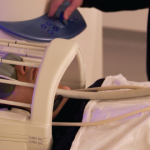WASHINGTON (Reuters)—Uncertainty surrounding the Republican plan to replace Obamacare is forcing some U.S. hospitals to delay expansion plans, cut costs, or take on added risk to borrow money for capital investment projects, dealing an economic blow to these facilities and the towns they call home. Hospitals typically lay out multi-year operating plans that prioritize investments,…
Hospitals Have Lower Death Rates During Surprise Inspections
(Reuters Health)—Patients may be less likely to die in U.S. hospitals during weeks when accreditation inspectors show up unannounced than during other times of the year, a recent U.S. study suggests. Researchers examined mortality data for 1,984 hospitals nationwide from 2008 to 2012. During surprise inspections, 7.03% of patients died within 30 days of being…

Quality Measures Used to Assess Care, Improve Outcomes in Children, Adults with Rheumatic Diseases
WASHINGTON, D.C.—In a session during the 2016 ACR/ARHP Annual Meeting, aptly called Quality Measures and Quality of Care I, a panel of experts presented information on a number of programs underway in rheumatology using quality measures to both assess and improve patient outcomes. Leading off were two presentations on programs using quality measures to improve…

Credit Card Program Helps Physician Practice Manage Its Income
As Erin L. Arnold, MD, partner, Orthopaedics and Rheumatology of the North Shore, in Skokie, Ill, observed patients’ health insurance deductibles and copays getting dramatically higher and higher, she decided that it was time to explore a program that would require patients to keep a credit card on file. “As a private practice and small…

fMRI Can Help Diagnose Fibromyalgia
Brain imaging can distinguish fibromyalgia patients from healthy controls with high sensitivity and specificity, according to two papers published nearly simultaneously in Pain late last summer, by groups at the Universities of Colorado and Michigan, respectively. Somewhat surprisingly to the authors and others, in the Colorado study, which used both painful and nonpainful stimuli, the…

Undercoding Is Not an Audit-Proof Strategy in Medical Documentation
Overcoding is a common term used when discussing fraud and abuse in reporting procedures and services not supported by the actual work performed. Alternatively, undercoding—or failing to report the full extent of services or procedures provided—is an equally unsound practice and a compliance risk. In the world of quality reporting, undercoding can have damaging effects…

ACR Puts Forward Principles on Patient Access to Care
The ACR has partnered with the American Medical Association (AMA) and over a dozen stakeholder groups to create a set of 21 principles to reform prior authorization protocols. This coalition represents hospitals, medical groups, patients, pharmacists and physicians with a unified goal of creating a more patient-centered, streamlined and transparent process for prior authorization. According…
Clinical Documentation and Coding Boot Camp
Coding properly and efficiently can have a profound effect on practice viability. ICD-10’s many changes, both ongoing and planned, have many physicians, coders and practice administrators confused, especially as the changes relate to clinical documentation improvement. To address this issue, a pre-symposium course on documentation and coding will be held in conjunction with the ACR’s…
5 Skills for Successful Physician Management
After 39 years in rheumatology practice, Herbert Baraf, MD, says, “Management has a great influence over the quality of practice.” Here are some tips for physician management…
Industry Ties Common among Nonprofit Patient Advocacy Groups
(Reuters Health)—An examination of more than 100 of the largest U.S. nonprofit organizations created to improve health and fight disease has found that more than 8 in 10 get financial support from companies involved in the drug, biotechnology and medical device industry. In addition, over a third have at least one industry official on their…
- « Previous Page
- 1
- …
- 64
- 65
- 66
- 67
- 68
- …
- 173
- Next Page »